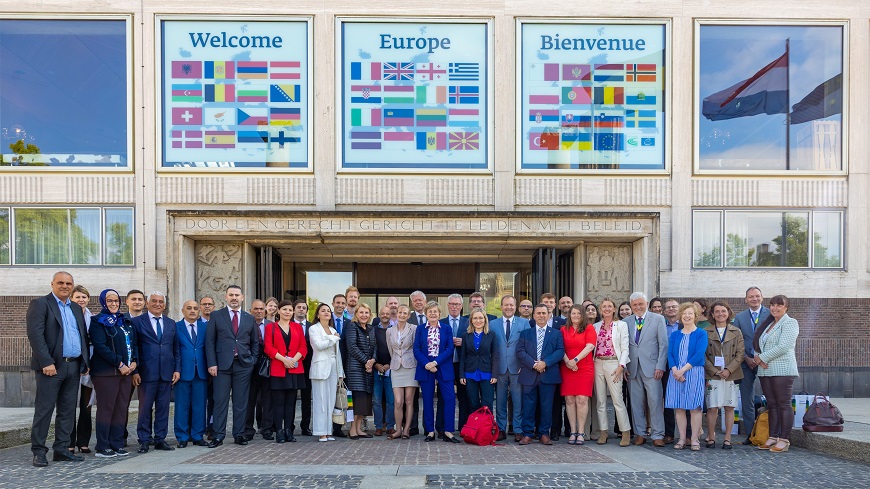The Congress Governance Committee, welcomed by Jan Markink (Netherlands, ILDG) and chaired by Jelena Drenjanin (Sweden, EPP/CCE), took place on 1 June 2023 in Arnhem (Gelderland province, Netherlands).
The members of the Governance Committee approved the draft information report on “The role of second parliamentary chambers in Europe in enhancing the representation of regions and local authorities” presented by co-rapporteurs Benoît Pilet (France, ILDG) and Doerte Liebetruth (Germany, SOC/G/PD) as well as the draft “European Urban Charter III (2023) : Urban living in the era of transformations”, presented by rapporteur Anne Colgan (Ireland, ILDG). These reports will be debated for adoption during the Congress session in October 2023.
Rich exchanges took place on circular economy, reviving small towns and rural areas and integrity and prevention of corruption as well as on the elaboration of a training module on hate speech and fake news.
On 2 June, the Committee meeting was followed by a “Governance Talks” Conference on digital empowerment for European municipalities and regions. Dutch Minister for Digitalisation, Alexandra van Huffelen, underlined that the Dutch government’s digital agenda is profoundly human centric. “Everyone can participate in digital life, everyone can trust the digital world, everyone has control over his/her digital life … and we work value driven and transparent for all” she emphasised. Researcher and adviser of the Ukrainian government on cyber resilience, Andrii Paziuk, described the massive cyberattacks faced by Ukrainian cities and illustrated how digital tools contributed to strengthen the resilience of Ukrainians during the war. “The major vulnerabilities found in local authorities’ computer systems are often rooted in outdated software and network systems”, he underlined. “To address these vulnerabilities, it is crucial to provide cybersecurity hygiene training to personnel. Additionally regular audits and monitoring of vulnerabilities are essential.” he added.
The Conference participants formulated recommendations on how to foster digital inclusion, maximise the benefit of artificial intelligence (AI) for communities, mitigating the related risks, and improve the cyber resilience in European municipalities and regions.
Closing the Conference, the Congress President Leendert Verbeek indicated that digital and AI tools do not exist to replace but to empower us. “Human rights, democracy and Rule of Law standards and requirements as well as sustainable development goals must be at the core of digital transformation”, he emphasised.
See more:
Photo gallery
Short video
Digitale weerbaarheid in oorlogstijd - iBestuur (in Dutch)
Elke provincie een gedeputeerde digitalisering - iBestuur (in Dutch)
Weerbare lokale overheid wekt vertrouwen (binnenlandsbestuur.nl) (in Dutch)




